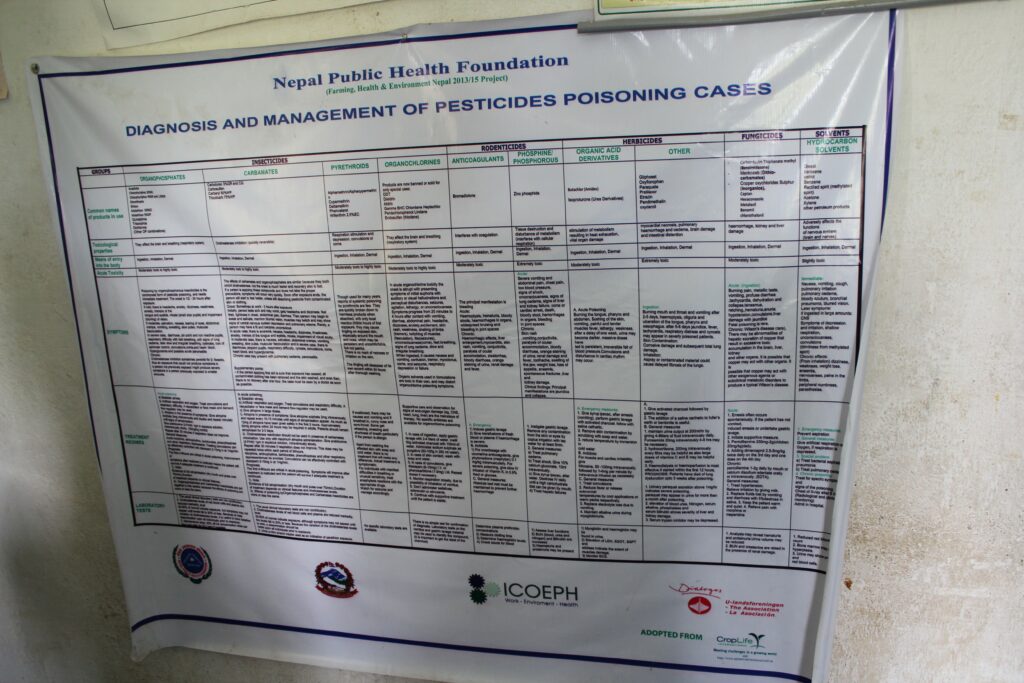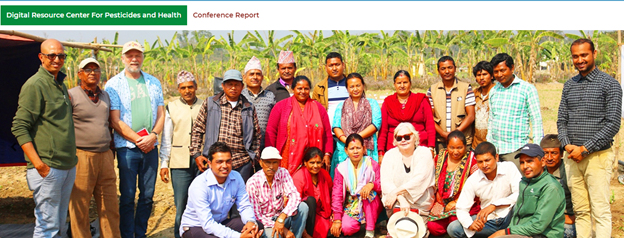COVID-19 har også ramt Diálogos samarbejdspartnere. Her er postkort fra Abhinay Vaydya, i Nepal Public Health Foundation, projektleder på pesticidprojektet i Nepal, som Diálogos laver i samarbejde med ICOEPH.
Nepal

“Farming, Health and Environment Nepal Project is one of the projects of Nepal Public Health Foundation, (NPHF), aimed to improve the health of farmers and consumers through safe food productions. This project basically works with local government and stakeholders for policy development and community empowerment for the reduction of use of chemical pesticides in agriculture. The use of chemical pesticide is increasing and getting worse due to unsafe handling and increased import in recent years in Nepal. Taking consideration of this situation, the project provides training to farmers to help them learn about alternatives of chemical pesticides and safe handling. Along with this we educate pesticide spray workers, retailers, health workers and school teachers to motivate them to act and voice for pesticide free foods from their position. NPHF works for these actions should accompany structural changes like pesticide minimization policy, acts and regulations, strict monitoring of the pesticide market and open border entry of pesticides.

Regarding COVID, Nepal has been hit like any other country. As of today, we have had 226,026 cases with 1389 deaths and 208,000 recoveries. The cases seem to be plateauing for the last couple of weeks, but it is hard to say if it is because the peak of the epidemic is over, or it is because there has been less number of tests done recently because of the big festivals in late October and mid November. Between March to July, there was a lockdown all over Nepal including the 7 municipalities in Chitwan, in the project area. Our project work naturally suffered because of it. Mainly the field work that required travel was affected. We also had to postpone the project-closure programs because all gatherings were prohibited. We could however make best use of the internet by conducting an advocacy meeting for ministerial level personnel, where Erik Jørs participated, and worked also on manuscripts based on the project data, and established a digital resource centre on pesticides, among other things.


